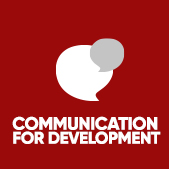Features




Master in Communication is a globally recognized programme for innovative teaching-learning approach. It secured ULAB 46th place in Industrial Application Category in the World Universities with Real Impact (WURI) Ranking 2020 (https://www.wuri.world/top-50-industrial-application).
The programme is devoted to harnessing knowledge and leadership. It brings together people with common interests and pursuits, who combine the knowledge in their various fields to produce a new idea, mindset, process and/or innovation. The program has a well thought of curriculum where communication is central to producing knowledge and leadership. This program seeks to produce leaders of professions that extensively utilize communication and leaders who can contribute new knowledge in their spheres. The strength of the program is having communication at its core. Undeniably, communication impels knowledge and leadership. The program is tailored to actualize Bangladesh’s needs to develop its knowledge and leaders to continue its ascent as Asia’s next success story.
To get regular updates, please visit our official Facebook page
Vision: Decolonized minds through media education and innovation.
Mission: Nurturing creative and critical thinkers in communication and cultural studies.
Goal: To continuously produce leaders of professions extensively utilizing communication who are capable of creating and contributing new knowledge needed by the information societies of South Asia
We are the flagship department of the University of Liberal Arts Bangladesh (ULAB) devoted to Cultural and Communication Studies. We put special emphasis on film, media, creative art, public relations and journalism. We believe in progressive and continuing education that is personalized, interdisciplinary, technologically updated and centered on active learning.
We uphold a curriculum that is flexible, industry specific and balanced in terms of theory and practice – a curriculum that is grounded in both global and local contexts. Our curriculum is complemented with dynamic co-curricular activities that are driven towards students’ portfolio building.
We are aware of our roles as producers of knowledge, creators of leaders and drivers of social change. As such, scholarship always steers our pedagogical approach and our creative works are part and parcel of who we are. We are committed to producing professionals who are skilled, creative, knowledgeable, open minded and analytical in thinking. We strive to instill ethics and a lifelong love for learning in our students.
Master in Communication has a cutting-edge curriculum relevant to industry and unmatched by other schools. The highlights of the curriculum are as follows:
LIBERAL ARTS BASED
The curriculum ensures a broad knowledge base. Students take ten general education courses in the fields of English, Bangladesh Studies, Computer Studies. World Civilization_ Social Sciences, Humanities and Physical Sciences. Moreover, students are required to take five minor courses whether from Business, English or Computer Studies.
RELEVANT TO INDUSTRY
The curriculum is designed based on an analysis of demand and supply relating to the manpower requirements of the communication and media industry. From our studies, the department has developed courses in business journalism; digital film and television production; and public relations. In addition, students are required to have an internship in an organization to enable them to appreciate and experience the dynamics of working in a professional setting.
INTERDISCIPLINARY
Communication is the heart of all social intercourse. It is, at its very core, interdisciplinary. Hence, the curriculum combines various fields in the discipline and actively recruits faculty from different academic training and traditions. The result is a dynamic department that discusses and explores social phenomena from many angles.
BALANCED IN TERMS OF THEORY AND PRACTICE
The department believes in a balance of theory and practice. Theories act as guides enabling students to avoid guesswork and seek inspiration from existing bodies of knowledge. Practice is essential in perfecting a skill or craft. Media and journalism professionals learn by doing things over and over again. Students must build a portfolio (consisting of media projects) by the time they graduate.
DEVOTED TO CULTURAL AND COMMUNICATION STUDIES
A uniquely designed programme to expose the students to the study of various cultural aspects – visual art, religion, music, fashion, historical traditions, communities, social relations and conflicts, etc. It focuses on issues such as mass culture, popular culture, visual culture, globalization, gender, sexuality, media power, new communication technologies, normative, legal and ethical issues in media representation.
GEARED TOWARDS KNOWLEDGE GENERATION
The university aspires to be a research university. It is enshrined in its vision. The department strives to follow this vision by setting its research agenda and by establishing a scholastic track record. It has a journal on ICT for development.
EMPHASIZING ON FILM, MEDIA, CREATIVE ART, PUBLIC RELATIONS AND JOURNALISM
The department has strategically decided to focus on certain fields of Communication. The faculty has specializations in film, media, creative art, public relations and journalism. The facilities provide adequate support to enable teaching in these areas.
PROFESSIONAL SKILLS
A number of courses designed with the focus of skill development. Most of these courses end with creative productions like film, photography, mask, installation or painting. Apprenticeship programmes give the opportunity to increase their professional skills. Industry practitioners directly supervise these programmes.